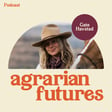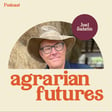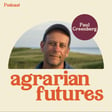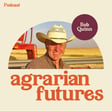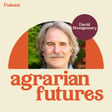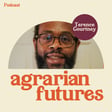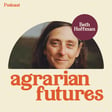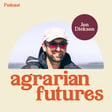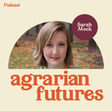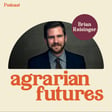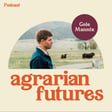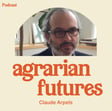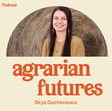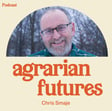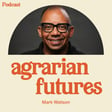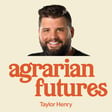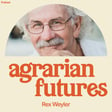
How to Leave the Industrial System Behind with Will Harris
Years before regenerative ag and grass-fed beef hit the spotlight, Will Harris was figuring it out on his own land.
At White Oak Pastures in Bluffton, Georgia, Will spent the last few decades unwinding everything industrial agriculture taught him: the chemicals, the confinement, the commodity mindset. In its place, he’s built a vertically integrated, closed-loop system that honors the land, the animals, the people who work it, and the rural town that depends on it.
White Oak Pastures is now one of the shining lights of what the future of agriculture can look like. If you’re thinking about what it takes to make regenerative ag not just real but resilient, you'll have something to learn from Will Harris.
In this episode, we get into:
- The real costs of industrial efficiency and what it takes to opt out.
- Why Will restructured every aspect of his farm—from soil health to slaughter.
- How White Oak Pastures uses animal impact to build biology, not extract from it.
- The economics of rebuilding a rural economy around regenerative principles.
- Will’s take on corporate greenwashing, fake meat, and the soul of agriculture.
- And the core belief that drives it all: regeneration is about relationships, not inputs.
More about Will and White Oak Pastures:
Will Harris is a fourth-generation cattleman, who tends the same land that his great-grandfather settled in 1866. Born and raised at White Oak Pastures, Will left home to attend the University of Georgia's School of Agriculture, where he was trained in the industrial farming methods that had taken hold after World War II. Will graduated in 1976 and returned to Bluffton, where he and his father continued to raise cattle using pesticides, herbicides, hormones, and antibiotics. They also fed their herd a high-carbohydrate diet of corn and soy.
In the mid-1990s, Will became disenchanted with the excesses of these industrialized methods. They had created a monoculture for their cattle, and, as Will says, "nature abhors a monoculture." In 1995, Will made the audacious decision to return to the farming methods his great-grandfather had used 130 years before.
Since Will has successfully implemented these changes, he has been recognized all over the world as a leader in humane animal husbandry and environmental sustainability. Will is the immediate past President of the Board of Directors of Georgia Organics. He is the Beef Director of the American Grassfed Association and was selected 2011 Business Person of the year for Georgia by the Small Business Administration.
Will lives in his family home on the property with his wife Yvonne. He is the proud father of three daughters, Jessi, Jenni, and Jodi. His favorite place in the world to be is out in pastures, where he likes to have a big coffee at sunrise and a 750ml glass of wine at sunset.
Agrarian Futures is produced by Alexandre Miller, who also wrote our theme song. This episode was edited by Drew O’Doherty.

